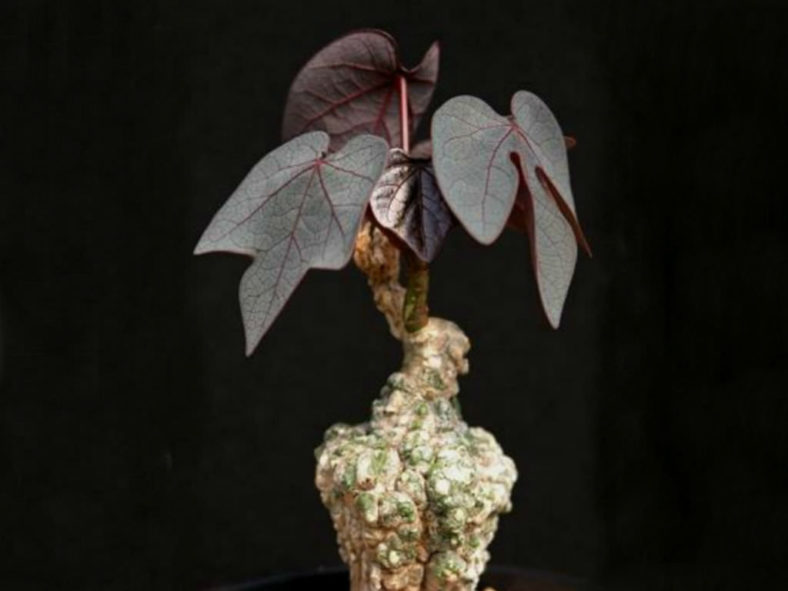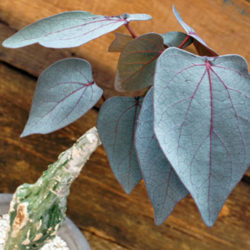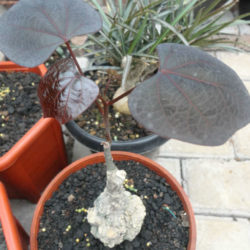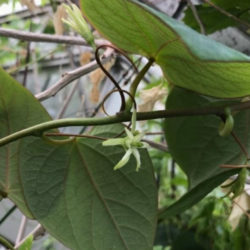Scientific Name
Adenia stylosa (Perr.) Hearn
Common Name(s)
Candlestick Plant, Purple Vine of Evil
Synonym(s)
Adenia epigea var. stylosa, Adenia firingalavensis var. stylosa
Scientific Classification
Family: Passifloraceae
Subfamily: Passifloroideae
Tribe: Passifloreae
Genus: Adenia
Origin
This species is endemic to northern Madagascar. It occurs in Ankarana National Park in dry forests, with the stems climbing high up into the surrounding vegetation.
Description
Adenia stylosa is an impressive pachycaul shrub or liana with fleshy, vine-like branches that grow from a caudex with a metallic green sheen. The caudex looks like wax drips rolling down a candle onto the candlestick, hence the common name. It can reach up to 6.7 feet (2 m) tall but usually grows less than 20 inches (50 cm) in height and up to 12 inches (30 cm) in diameter. Leaves are variable in shape and color but are usually heart-shaped and purple-violet to dark green with dark red veins.
The small flowers are pale yellow or greenish-white and appear in spring and summer. Male and female flowers occur on separate plants.

Hardiness
USDA hardiness zone 11a to 11b: from 40 °F (+4.4 °C) to 50 °F (+10 °C).
How to Grow and Care
Adenia plants are summer growers and can be watered and feed regularly if planted in fast-draining soil. Let the soil dry between watering if you are in a humid climate.
Most of your growth will be during the warm season, and the plant will have the most leaves. The plant will also grow best with the leaves exposed to bright light but the caudex shaded.
Protect the plant from frost during the cool months to keep it alive. The plant rests typically during this period, and water should be kept to a minimum. However, you can keep the plant active above 50 degrees Fahrenheit (10 degrees Celsius).
Their sap is poisonous and should be handled cautiously, particularly when pruning.
Most cuttings do not produce a caudex, so it is best to propagate by seeds. Adenias are either male or female, so one of each is required to produce seeds.
See more at How to Grow and Care for Adenia.
Links
- Back to genus Adenia
- Succupedia: Browse succulents by Scientific Name, Common Name, Genus, Family, USDA Hardiness Zone, Origin, or cacti by Genus
Photo Gallery
Click on a photo to see a larger version.



